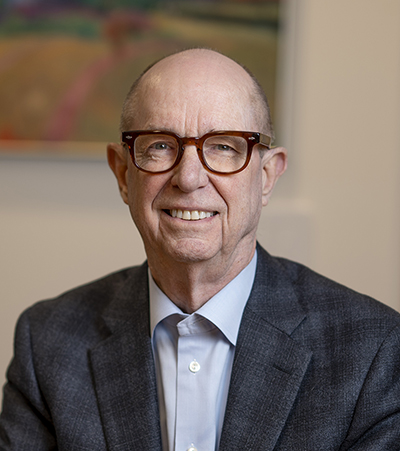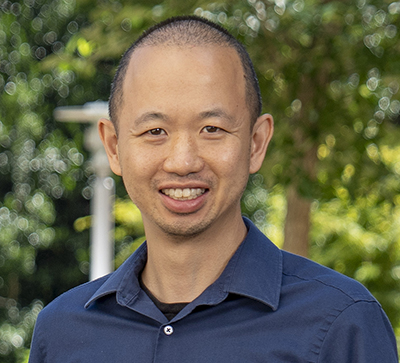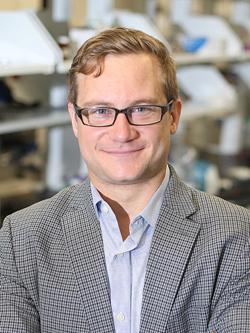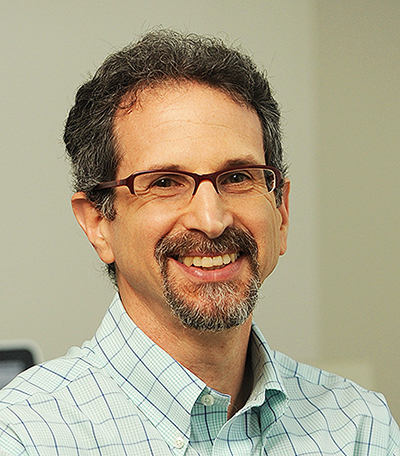News
Lindsley named 2022 fellow of American Society for Pharmacology and Experimental Therapeutics
Nov. 30, 2022—Craig W. Lindsley, University Distinguished Professor of Pharmacology, Biochemistry and Chemistry, who holds the William K. Warren, Jr. Chair in Medicine, was recently announced as a 2022 fellow of the American Society for Pharmacology and Experimental Therapeutics for his demonstrated excellence and contributions to pharmacology and to the ASPET organization.
Vanderbilt-Ancora partnership advances research for rare form of epileps
Nov. 1, 2022—Vanderbilt researchers’ partnership with Ancora Innovation LLC, a Deerfield Management company that supports Vanderbilt University’s innovative life science research, has added an effort to develop therapeutics for a rare form of epilepsy. This is the fourth drug discovery and development program supported through the Ancora-Vanderbilt collaboration.
ACS journal dedicates of 35-year anniversary issue to founding editor Larry Marnett
Oct. 18, 2022—In this issue of the 35th volume of Chemical Research in Toxicology (CRT), we share a special collection of science that celebrates the tremendous advances in this period at the intersection of chemistry and toxicology. Throughout the year, every issue of the Journal has borne a 35-year anniversary symbol to mark this milestone. This issue...
Vanderbilt’s Crowe receives the Building the Foundation Award from Research!America
Oct. 7, 2022—James Crowe Jr., MD, director of the Vanderbilt Vaccine Center at Vanderbilt University Medical Center, has received the Building the Foundation Award from Research!America, a national biomedical research advocacy organization, for his team’s role in developing human monoclonal antibodies and vaccine candidates against COVID-19. The award, which was announced Oct. 6, recognizes individuals whose basic research...
Erik Skaar et al land grant to build top-line biosafety facility
Sep. 30, 2022—Vanderbilt University Medical Center has been awarded a nearly $8 million grant from the National Institutes of Health to construct a state-of-the-art BioSafety Level 3 (BSL3) facility for research involving the COVID-19 virus, anthrax and other dangerous microorganisms. VUMC currently has two BSL3 labs, but they are small, outdated and can accommodate only a few investigators....
Colon cancer researchers awarded NCI grant for study of early lesions
Sep. 29, 2022—Vanderbilt University Medical Center has received a five-year, $5 million grant from the National Cancer Institute to study precancerous lesions and early cancers in the colon, with the goal of developing new ways to prevent colorectal cancer, the nation’s second leading cancer killer. Ken Lau, PhD, left, Robert Coffey, MD, Martha Shrubsole, PhD, and colleagues are...
John Wilson to use $3 million grant to develop technology to help cancer patients better fight disease
Sep. 7, 2022—John Wilson, associate professor of chemical and biomolecular engineering at Vanderbilt University, has received a $3 million grant from the National Cancer Institute to develop technology that seeks to boost a person’s immune system to better fight cancer. Wilson is the Principal Investigator of the five-year grant. He specializes in the study of cancer immunotherapy...
COVID antibody research conducted at VUMC lands national award
Aug. 25, 2022—A long-acting antibody combination discovered at Vanderbilt University Medical Center that protects against COVID-19 in high-risk individuals, and which was optimized and developed by the global pharmaceutical company AstraZeneca, has received a gold medal in the 2022 R&D 100 awards program announced Aug. 22 by R&D World Magazine. Now in its 60th year, the R&D...
Leveraging the structure of bacterial host cell receptors to detect cancer
Aug. 16, 2022—Bacteria in our bodies bind to various host cell surface receptors, which determines where the bacteria live and how they behave. These receptors, made up of chains of sugar molecules called glycans, are more than meets the eye. Cells existing within progressive disease states like cancer can have an increased number of glycan receptors on...
Researchers create algorithm to help predict cancer risk associated with tumor variants
Aug. 9, 2022—Vanderbilt researchers have developed an active machine learning approach to predict the effects of tumor variants of unknown significance, or VUS, on sensitivity to chemotherapy. VUS, mutated bits of DNA with unknown impacts on cancer risk, are constantly being identified. The growing number of rare VUS makes it imperative for scientists to analyze them and...








